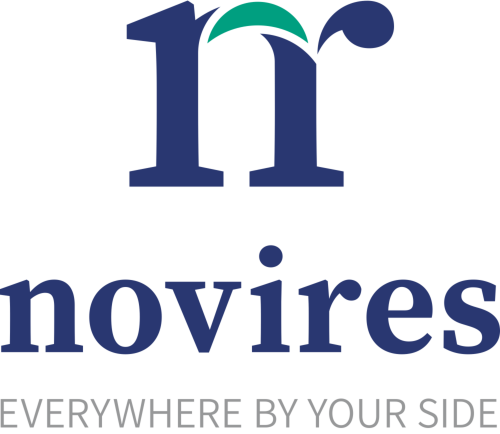Pillars of Professionalism: Training and Essential Skills for Insurance Adjusters

In today’s ever-changing insurance landscape, insurance adjusters assume a major role in ensuring that claims are evaluated with accuracy, professionalism and impartiality. This article explores the vital importance of professional training and skill development for adjusters, emphasizing how these skills not only improve the quality of their work, but also contribute to the confidence and effectiveness of the entire insurance industry.
Importance of Insurance Adjuster Training
Professional training for appraisers is not an optional extra, but an unavoidable necessity. With the constant advancement of technology and the increasing complexity of insurance risks, continuous and focused training becomes essential. This commitment to training ensures that appraisers are always up-to-date on the latest regulations, appraisal techniques, and technological tools. The ability to adapt and respond competently to new challenges is what distinguishes the most qualified and trained professionals, ensuring accurate and reliable assessments.
Continuing Education: A Fundamental Pillar
Continuing education is a key pillar for insurance adjusters, enabling them to stay abreast of industry developments. This training embraces not only the latest assessment methodologies and regulations, but also the technological innovations that are transforming the industry. Investing in specific continuing education programs and certifications not only elevates the quality of their work, ensuring accurate and reliable assessments, but also strengthens their professionalism and credibility in the insurance field.
Technical Competencies of Insurance Adjusters
To become an outstanding insurance adjuster, it is crucial to possess a solid set of technical skills. These include:
Deep knowledge of insurance principles
The different types of policies, contract terms and conditions, exclusion clauses, and coverages offered.
Damage assessment procedures
Analysis of the claim, identification of damage, estimation of the value of damaged property, and quantification of compensation.
Relevant laws and regulations
Insurance Code, civil and criminal laws, specific regulations for different branches of insurance.
The ability to accurately analyze information, interpret insurance policies and determine the value of claims requires in-depth and specific technical training. Keeping these skills up-to-date through continuing education is essential to effectively respond to the complex challenges of the industry.
Scientific and Analytical Skills Needed in the Forensic Field.
A scientific and analytical approach is indispensable for insurance adjusters, enabling them to assess claims accurately and impartially. These skills enable:
- Interpreting complex data
- Request and analyze technical documentation, medical reports, inspection reports, and investigative reports.
- Identify causes and consequences of claims
- Apply investigative methodologies to reconstruct the dynamics of the accident and determine its causes.
- Apply evidence-based evaluation methodologies
- Use statistical tools, analysis software, and modeling techniques to estimate the value of damages.
The use of advanced analytical techniques and specific software increases the effectiveness of their work, ensuring assessments that accurately reflect the reality of the damage suffered, based on objective and measurable principles.
Impartiality and Professional Ethics: Indispensable Qualities for Insurance Adjusters
Impartiality and professional ethics are fundamental aspects that guide the work of insurance adjusters. These qualities ensure that any assessment is conducted objectively, without being influenced by bias or outside interests. Professional ethics requires that we always act with integrity, ensuring fairness and transparency in the claims assessment process. These principles are essential to maintaining customer trust and the integrity of the entire insurance system.
Soft Skill Development
Soft skills, such as effective communication, problem solving, and customer relationship management, are crucial for insurance adjusters. These skills enable:
- Communicate effectively: Explain assessments in clear and concise terms, adapting language to the client’s level of understanding.
- Effective Problem Solving: Handle complex situations, find creative solutions and reach agreements satisfactory to all parties involved.
- Manage customer relations: Listen carefully to customer needs, manage customer expectations, and resolve any disputes with professionalism and tact.
Developing these interpersonal skills improves the quality of service provided, strengthening customer trust and satisfaction, which are key elements for success in the insurance industry.
Examples of Relevant Soft Skills for Insurance Adjusters.
- Communication: Active listening, assertiveness, clarity of exposition, empathy.
- Problem solving: Analytical skills, critical thinking, creativity, decision making.
- Relationship management: Negotiation, mediation, conflict management, customer service.
Soft Skill Development Training Opportunities.
Training opportunities to develop soft skills are many in today’s training scenario characterized by a wide range of courses taught live or online. Insurance adjusters can benefit from:
- Specific training courses on communication, problem solving and relationship management.
- Workshops and seminars held by experts in the field.
- Individual or group coaching.
- Hands-on learning experiences through simulations and role-playing.
- Industry Webinars
Important Additional Qualities for Insurance Adjusters.
In addition to the technical and soft skills described above, successful insurance adjusters should develop the following qualities:
- Ability to continuously learn: The insurance industry is constantly evolving, so it is important to be willing to constantly learn new concepts and skills.
- Flexibility and adaptability: Appraisers must be able to adapt to different situations and contexts, working with people from different backgrounds and cultures.
- Resilience and ability to handle stress: The work of the appraiser can be challenging and stressful at times, so it is important to be able to handle pressure and remain calm under pressure.
Conclusions
Investing in professional training and the development of skills and soft skills is a key investment for insurance adjusters. The combination of sound technical training, unwavering work ethic and well-developed soft skills forms the basis for effectively meeting future challenges and maintaining the industry’s resilience.
Novires follows all training opportunities for insurance adjusters with interest and dedication, actively engaging in professional training and interpersonal skills development for its team. This approach reflects our vision that sees the continued growth and excellence of our appraisers as key to providing superior appraisal services and sustaining the trust and confidence of our clients in the insurance landscape.
